Under certain circumstances, people who were held as slaves in the British colonies and early United States were able to sue for their right to be free from slavery. In the 17th through the 19th centuries, hundreds of “freedom suits” were filed and many slaves were able to successfully petition the courts for their freedom and that of their children. Because it was more difficult for women with children to escape from slavery, a majority of freedom suits were filed by women on behalf of themselves and their families.
“Partus sequitur ventrem:” Law of the Free Womb
European powers in the past had a hard time determining the subjecthood or citizenship of Africans and people of mixed-race descent. Africans were originally looked at as foreigners, and there was no process for them to become English subjects. As more Africans were brought to the colonies as slaves, the courts struggled to define the legal status of their children.
In England and the colonies, a legal doctrine called “partus sequitur ventrem” was adopted. This Latin phrase means “that which is brought forth follows the womb,” and is borrowed from Roman civil law, where the slave status of a child was determined by its mother’s status.
Suing For Freedom from Slavery
Under the “partus sequitur ventrem” doctrine, if a child’s mother was free, then the child should be free as well. The child or descendent of a free woman could sue for their own freedom if enslaved. A person could also file a freedom suit if they were themselves born free and became a slave, regardless of the status of their parents.
The laws about legal status of slaves were complicated and inconstant before slavery was abolished with the end of the American Civil War. Some states adopted policies like Mississippi’s “once free, always free” policy, which was held from 1824 until overturned in 1852.
Other states allowed slaves to sue for freedom if their owners had brought them to a free northern state for a certain length of time, or had other complicated conditions for allowing slaves to bring lawsuits.
Elizabeth Key Grinstead
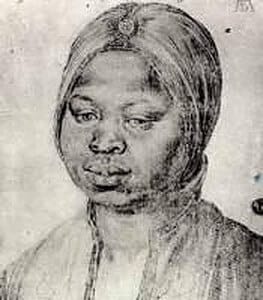
Elizabeth Key Grinstead was the first African-descended woman to file and win a freedom suit in the North American colonies.
She was born to a black slave woman in 1630 on a plantation owned by her father. As an illegitimate child, she was expected to complete an indentured apprenticeship until she came of age at 15, when she would be free.
When the owner of the plantation where she worked died, she was mistakenly classified in his estate as a slave.
Elizabeth filed a freedom suit in 1655 with the help of her partner and child’s father, who was a lawyer. She successfully argued that her English ancestry through her father prevented her from being enslaved for life.
Marguerite Scypion
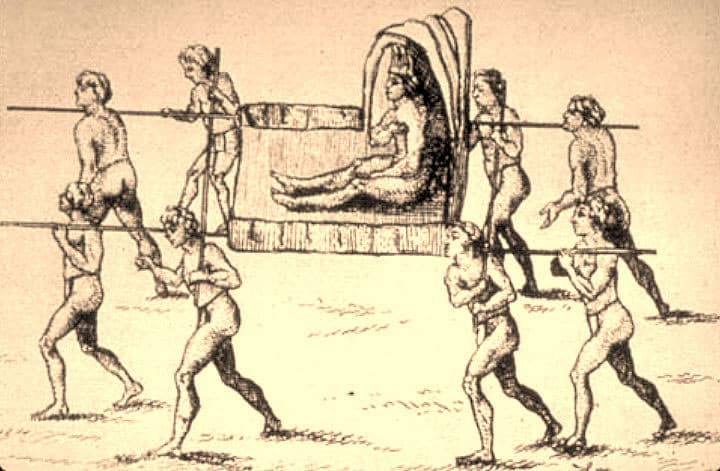
Marguerite Scypion filed the first freedom suit in Saint Louis 1805. Marguerite’s father was a black slave, and her mother was a Native American woman of the Natchez people of Mississippi.
She argued in court that since Indian slavery had been abolished in the Louisiana Territory in 1769, she and her descendants were legally free according to the “partus sequitur ventrem” doctrine.
She fought in court for over 20 years until she and her family were finally ruled free.
Women who were held in slavery had to worry not only about themselves, but about their children. In hundreds of cases, though they were unable to escape safely with their families, they could sue in court for their freedom. Many of these cases were successful in the centuries before the abolition of slavery in the United States.
Keri is a blogger and digital marketing professional who founded Amazing Women In History in 2011.

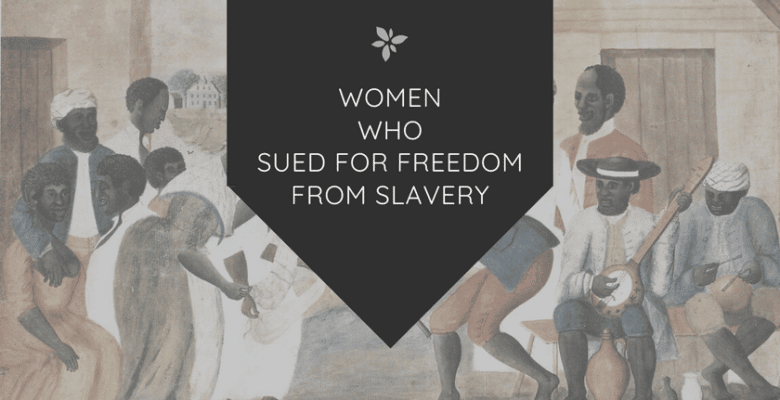
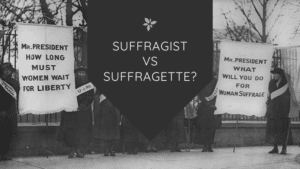
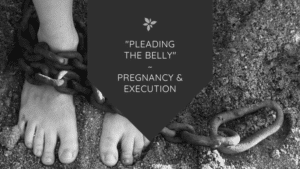


Leave a Reply